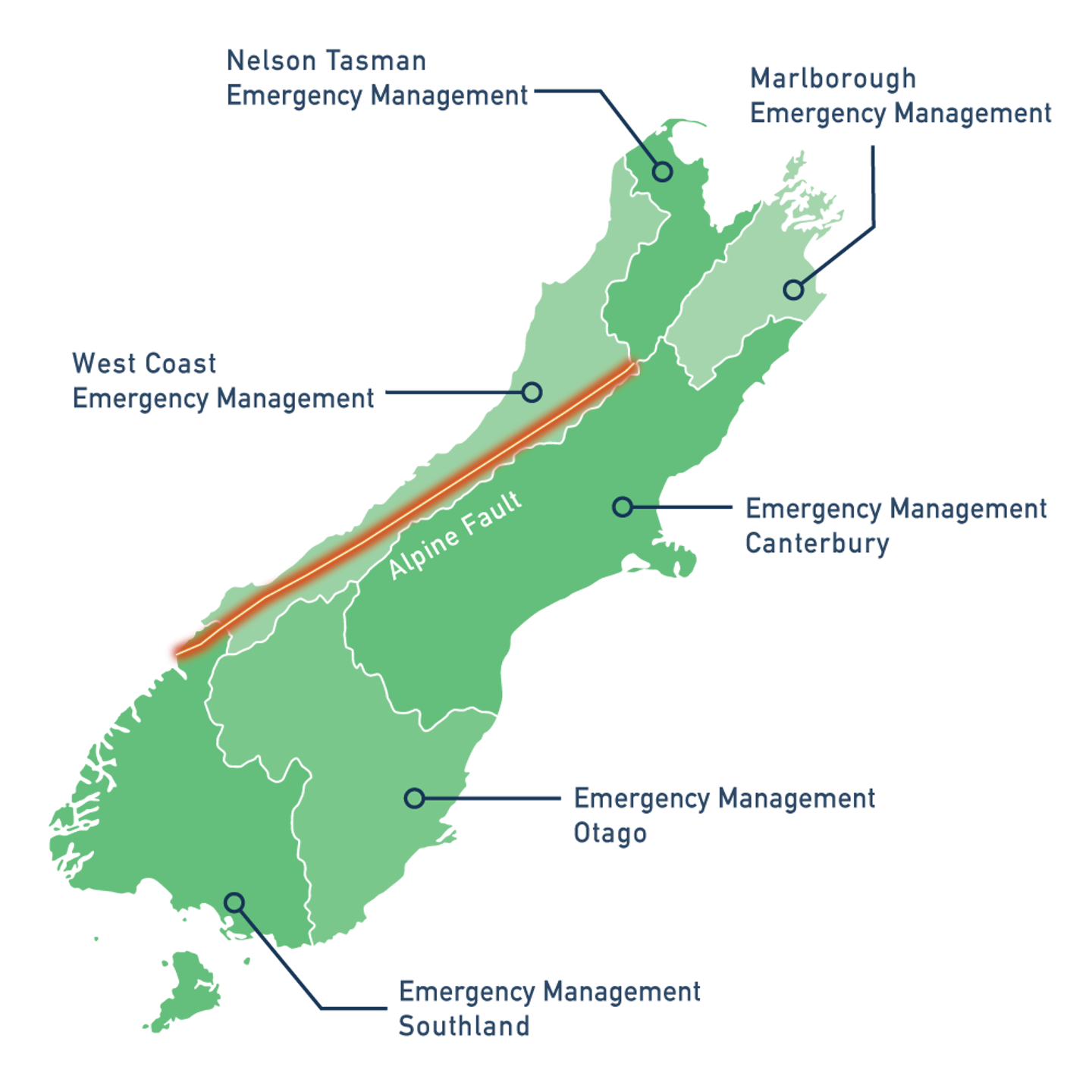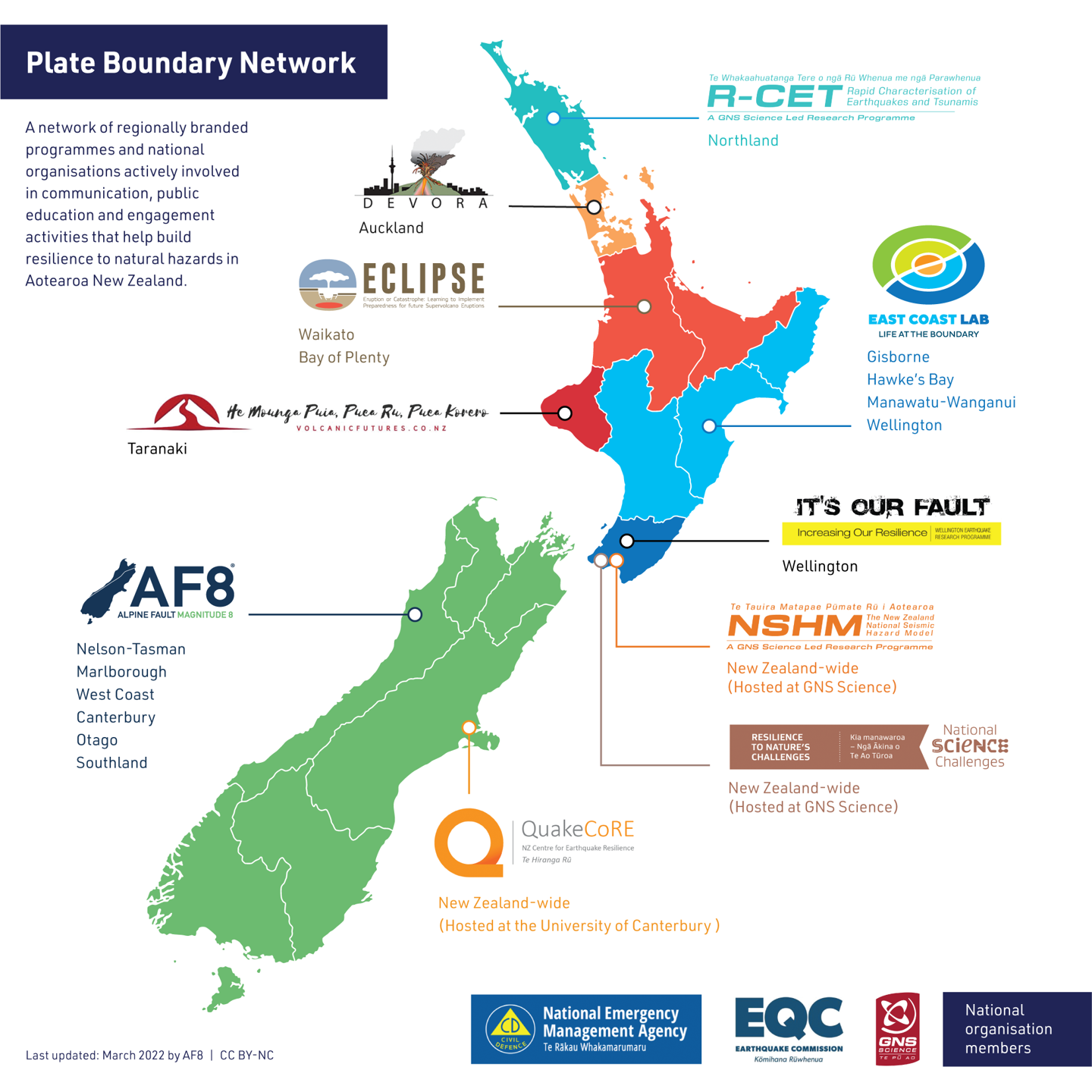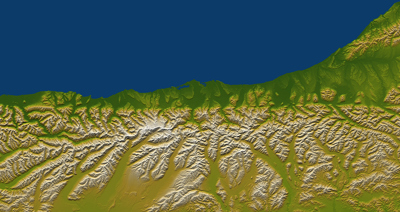AF8 is best understood as a ‘boundary organisation’: an interdisciplinary partnership between research, policy and practice designed to support, build and coordinate readiness and response capability for the next great Alpine Fault earthquake, across the South Island of Aotearoa New Zealand. The programme was established and continues to be led by the 6 South Island Emergency Management (EM) Groups and key Alpine Fault hazard risk science partners Resilience to Nature’s Challenges (RNC) and QuakeCoRE: NZ Centre for Earthquake Resilience.
Governance and leadership for the programme is provided by the AF8 Steering Group comprising the 6 South Island Group Managers, science leaders and a National Emergency Management Agency (NEMA) representative. Emergency Management Southland acts as the chair and the administrative authority for AF8. West Coast Emergency Management currently acts as the deputy chair.
While AF8 has no statutory role, nor will it take on the role of managing a response to an Alpine Fault earthquake – these responsibilities lie with the EM Groups, NEMA and their partner agencies – the programme provides a critical platform to enable planning and preparedness and has several key roles:
- Bringing together emergency managers, scientists, policymakers, practitioners and communities to build capability for earthquake readiness and response;
- Providing a conduit for the direct application of Alpine Fault related research to support policy and practice;
- Facilitating engagement between scientists, emergency managers and the public;
- Translating and communicating hazard risk science to enable informed decision-making for planning and preparedness.




















